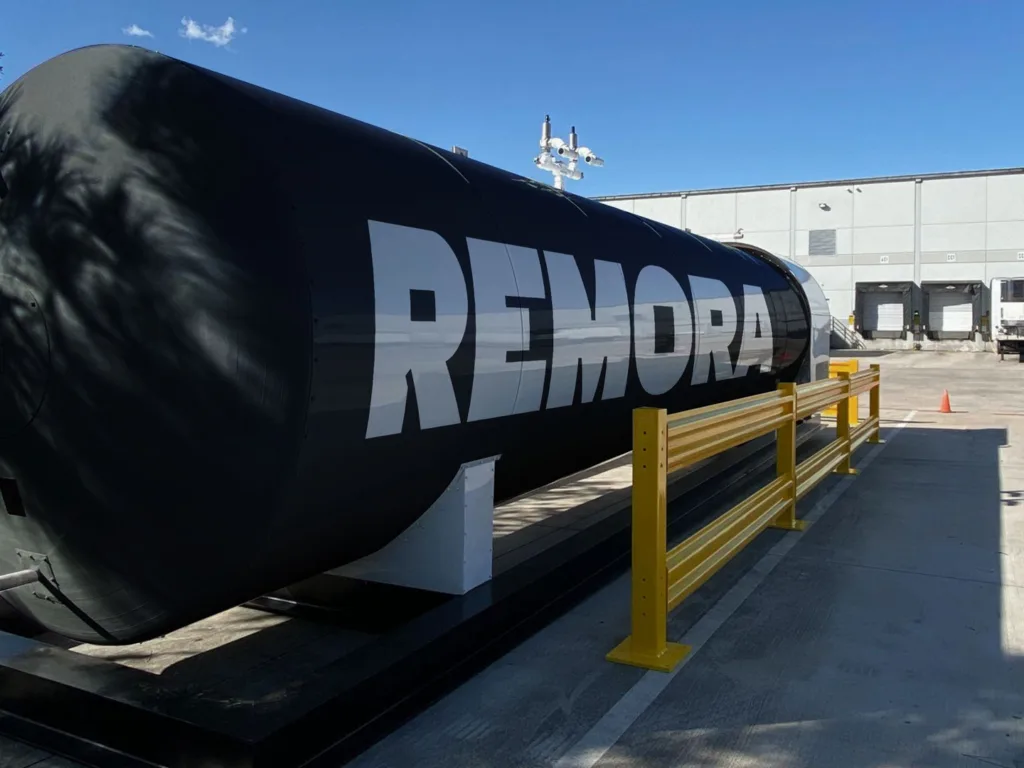-
Carbon is captured as the train moves, then cooled and compressed into a liquid state.
-
Investors are hopeful that the technology has great potential to scale and decarbonise the freight industry.
Michigan-based Remora, a carbon-capture startup that extracts carbon dioxide (CO₂) from the exhaust of diesel freight trains and trucks, is developing a mobile carbon-capture system to decarbonise the transportation industry.
To test and expand its technology, the startup recently purchased a 4,400-horsepower locomotive. Its system is expected to capture around one tonne of CO₂ per hour, which will be sold to buyers in agriculture, food, and beverage, with profits shared with its transport partners.
So far, the business has raised $117 million in venture capital and worked on developing its hardware for more than five years, unlike other software startups that can swiftly generate revenue.
In 2023, their first pilot faced several issues, including waterlogging and backpressure on truck engines, prompting the company to redesign the technology. Now that the system has been updated, Remora is moving forward with plans to test it on moving trains in 2026.
READ MORE: Carbon Clean and Industry Partners to Decarbonise Heavy Industries
Big names in railroads and trucking—Union Pacific, Norfolk Southern, DHL, and Ryder—jumped in to test Remora’s system. Despite the U.S. environmental regulations impacted by the Trump administration’s anti-ESG policies, many transportation companies have not backed down and still view carbon reduction as a long-term priority.
Rail companies are keen on Remora’s technology because it can retrofit existing diesel locomotives rather than buying new ones, which promotes sustainability in rail transportation.
This is how mobile carbon-capture technology works: First, the vehicle exhaust is passed through a cylinder filled with tiny pellets that absorb CO₂. The captured CO₂ is vacuumed out, compressed, and cooled into a liquid state.
The technology also removes soot and ash from the exhaust. As a result of the 2023 pilot failure, the startup now uses a new adsorbent material and claims to capture CO₂ with up to 90% efficiency.
ALSO READ: China Launches First Oil Production Ship with CO₂ Capture
Investors say that while mobile carbon capture is quite a challenge due to the heaviness of carbon and the high cost of transportation, if Remora emerges successfully from its pilot, it will be a much-awaited technology, helping the freight industry achieve decarbonisation.
Ends/
Are you looking for climate technology experts like Remora? We are here to help with our extensive network of ESG and sustainability providers, offering a wide choice of services.
Follow KnowESG’s Technology News for regular news and views.
Check out our latest ESG Event updates
Source: WSJ

